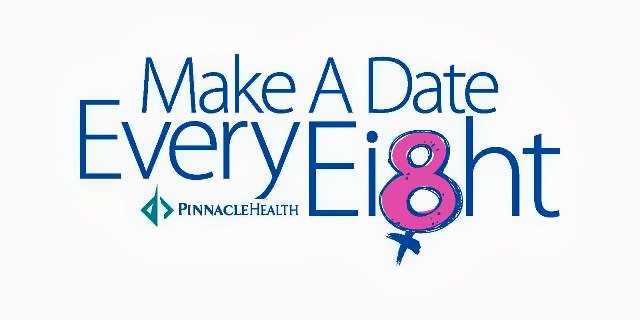Marge Beck BS, PA-C
Kathaleen A. Johnson, DNP, CRNP, CCRN
Santina Sperling MS, CRNP
PinnacleHealth CardioVascular Institute
Everyone knows exercise is good for your health, but sometimes finding a workout you like and getting started is tough. In recent years, Zumba and Yoga have become very popular and with good reasons. PinnacleHealth CardioVascular Institute nurse practitioner Kathaleen Johnson explains, “Both types of exercise offer great health benefits and are easy and fun to do. We always encourage patients to choose activities they enjoy because these are the activities that will become a healthy habit.”
Yoga is seen as many as a trendy type of workout but it actually dates back many thousands of years. Consisting of slow paced movements where participants focus on form and breathing, yoga has various styles of practice including hatha, vinyasa and bikram to name a few. Beginners often get caught up in the terminology and a feeling of self-consciousness, neither of which should hold someone back. Yoga is meant to be a practice and a personal effort where you focus on yourself. Even the most advanced practitioners (called yogis) will explain that they still practice and have good days and bad days. The most important advice when beginning yoga is to be patient with yourself.
People now realize the many health benefits yoga offers which explain why so many people have made this a part of their healthy lifestyle. These benefits are both mental and physical and include lower blood pressure, increased lung capacity, improved respiratory function and heart rate, better circulation, and better muscle tone.
Additionally, yoga can aid in stress management, which provides positive benefits to heart health.
“Significant stress has many negative effects on the body, including negative effects on the heart. Yoga can help reduce stress by clearing the mind, increasing focus and lowering blood pressure, even after just one session,” explains Santina Sperling MS, CRNP with PinnacleHealth CardioVascular Institute.
Zumba is a more recent workout craze that combines upbeat Latin music with a handful of easy to learn dance based moves. Most participants describe Zumba as more dance party than workout, but don’t be fooled there are serious benefits to Zumba. The benefits include calorie burn, increased aerobic threshold, more stamina, increased bone density, improved balance and muscle tone, less body fat, and lower blood pressure.
“From a cardiovascular standpoint, any exercise that helps maintain a healthy weight, and helps to lower blood pressure, is a good exercise to try” says Marge Beck BS, PA-C a physician assistant and part of the PinnacleHealth CardioVascular Institute.
The American Health Association recommendations for physical activity outline the best way to go about achieving heart health benefits from exercise. They include:
- Get the equivalent of at least 150 minutes of moderate intensity aerobic physical activity (2 hours and 30 minutes) each week.
- You can incorporate your weekly physical activity with 30 minutes a day on at least five days a week.
- Physical activity should be performed in episodes of at least 10 minutes, and preferably, it should be spread throughout the week.
- Include flexibility and stretching exercises.
- Include muscle strengthening activity at least two days each week.
Looking to try one of these great workouts but don’t know where to begin? Make a Date today for PinnacleHealth’s afternoon of Zumba and Yoga, presented by The PinnacleHealth CardioVascular Institute Nurse Practitioners and Physician Assistants. This event is today, February 8th from Noon -3 p.m. at the Linglestown Life United Methodist Church 1430 N. Mountain Road, Harrisburg, PA
Registrations will be accepted at the today’s event and the cost is $20 per person which includes a t-shirt. All proceeds will benefit the American Heart Association Go Red for Women® program.
Zumba and Yoga will be held from 1-2pm with additional activities including blood pressure, weight, pulse and cholesterol checks as well as CPR instruction. Stuart Pink, MD, cardiologist, will be on hand to offer information on peripheral vascular disease and the PinnacleHealth Capital Region Vein Center.
